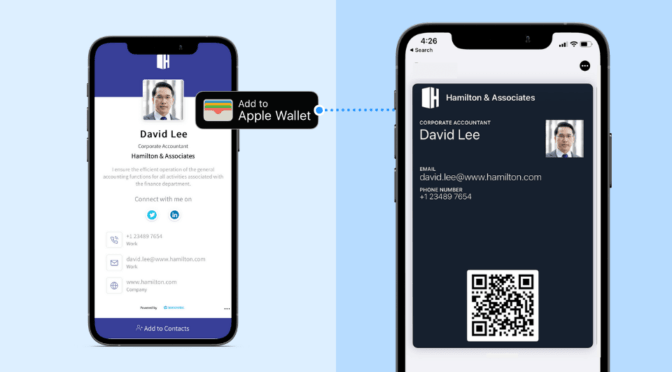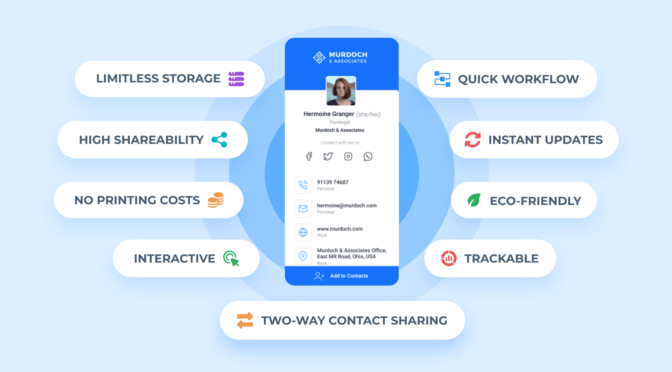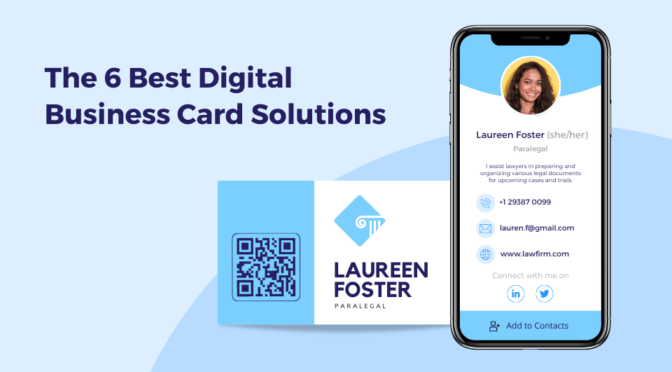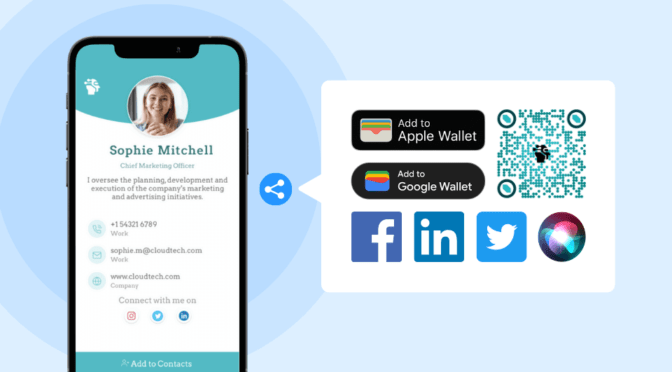If “what you know” leads you to the next stages of your career, “who you know” decides how fast you get there.
Your professional network can unlock many business and career growth opportunities, making it one of your most valuable assets—potentially more than your talent 😱.
But how do you build a meaningful professional network? The answer lies in online professional networking, which involves actively participating in networking events.
If you’re new to this, I will help you understand professional networking and its importance to your career. I will also give you handy tips on how to build a strong professional network.
What is professional networking?
Professional networking means mindfully creating and maintaining meaningful relationships with professionals or prospects. It helps you build a strong network, find opportunities to advance in your career, and acquire more customers for your products or services.
Professional networking is also essential for building your brand, as you can showcase your achievements and expertise and engage with like-minded communities.
Interacting with other professionals through business-specific events, tradeshows, virtual networking events, and conferences can be beneficial. It also encompasses one-on-one networking through LinkedIn, Telegram, Meetup, designated off-sites, and luncheons.
The benefits of professional networking for your career growth
According to a LinkedIn study, nearly 80% of the participants considered professional networking essential to their career success.
Here are the various ways networking professionally impacts your success at the workplace:

1. Build connections
Generally, people who are junior in their organizations or belong to a minority may feel that they don’t have much to give and, therefore, hesitate to network. However, they’re the ones who will probably derive the most benefit from it.
Networking can help you build, or at least know, the knowledge and skills needed for your job and how to achieve them. Through professional networking, you get to connect with:
- Prospects: Meet potential clients who would be interested in and need your products or services
- Experts: Converse with professionals and gain insights on the trends and developments in your industry or areas of interest by attending workshops, conferences, and seminars
- Mentors: Find mentors who can support, advise, and guide you through your career journey
- Sponsors: Find a sponsor who can help you advance your career by advocating for you, connecting you with the right decision-maker, and helping you gain visibility
2. Spread the word about your business
In events, you can simultaneously take your business on thousands of relevant people’s radars. You can bring it up organically as you network or snag a speaking slot to share your story formally.
For example, SaaStr, a leading software-as-a-service (SaaS) networking event, attracted over 13,000 executives, founders, and entrepreneurs in 2024 to connect, meet VCs, learn, and network.
Such events give you a vast audience of potential prospects and strategic partners to promote your business, hire, and create awareness.
3. Stay on top of industry trends
Between educational conferences, keynote talks, and networking chats, events keep you informed about your field’s latest trends and innovations.
Having your finger on the pulse of industry developments helps you position your business for success.
For example, the Tom Ferry Success Summit invites keynotes from real estate stalwarts. In 2024, the attendees learned from agents how they generated over $200K in GCI and viral listing strategies, among other success discussions.
4. Recharge your motivation
Your professional journey may sometimes feel lonesome and draining. But surrounding yourself with the energy and passion of like-minded people can re-spark your enthusiasm and drive.
The keynotes and success stories can also energize you with new inspiration and perspectives.
5. Level up your skills
You can learn new tactics and insider tips to boost your abilities through hands-on workshops and training sessions. In a way, you’re building your professional learning network to hone your skills actively instead of just passively reading about them.
Additionally, participating in a mentoring program at these events can provide personalized guidance, helping you to apply what you’ve learned more effectively in your career.
Professional networking tips to get the most out of your participation
1. Networking for learning first and networking second
Generally, networking is for promoting a business, product, or service. However, professional networking conducted online or through in-person events brings many opportunities to learn, collaborate, and brainstorm new ideas with people who share similar interests and goals.
A LinkedIn influencer rightly said that instead of trying to be interesting, one must start showing interest in the skills and expertise of others.

So don’t see networking merely as a promotional event. Take it as an opportunity to gain the knowledge and skills needed to excel in your job.
A simple and slight change in mindset can make your networking experience more fulfilling.
2. Choose the right professional networking event
With so many in-person and online professional networking events, I’m sure you’ll be spoilt for choice. You’ll encounter conferences, webinars, workshops, meet-ups, luncheons, and expos.
Follow these tips to narrow down the events that are truly worth your time:
- Evaluate your objectives: Do you aspire to cultivate new prospect relationships? Or do you want to establish connections with potential vendors? Opting for events that align with your desired outcomes is crucial
- Define your target audience: Focus on events where your ideal target market gathers. When researching an event, consider the participants’ specific attributes to determine if they characterize your ideal audience. In addition to fellow professionals, you may also target end-buyers. For example, your target audience in a real estate expo might be property investors over 40 years old with significant net worth
- Consider your personality and preferences: Acknowledging your networking style is crucial in making the right choice. Some individuals thrive in the dynamic atmosphere of vast conferences. In contrast, some find comfort in smaller, more intimate workshops where in-depth conversations can flourish
- Evaluate the cost of participation: Weigh the cost of admission against the benefits you expect from attending an event. While larger events offer heightened exposure, they are generally more expensive
- Don’t shy away from virtual networking events: Online professional networking can save travel costs and time. It is also a great option if you can find your target audience or the professionals with whom you want to connect
3. Use digital business cards as your networking tool
Per a Salesforce report, six out of 10 consumers prefer digital interactions with businesses over physical ones due to convenience.
Paper business cards can pose many drawbacks in your event networking initiatives. In addition to a manual contact exchange, you cannot track engagement, and you never know if your recipient has already misplaced or discarded your card.

Switching to a digital business card (or e-business card) can solve these issues. This modern, paperless alternative helps you stand out for these reasons:
- Share your digital business card via Apple Wallet (or Google Wallet), QR Code, or URL. These contactless methods are easier to share
- Convey unlimited information unlike using paper cards. Show as many phone numbers, URLs, and social proofs as your recipients require
- Your recipients can save your contact details with a single tap. And if they wish to share their information in return, they can do so via your card’s two-way contact sharing form
- Digital business cards are highly interactive. Your recipients can interact with all the information you share in a click-to-access manner
- You can also track and analyze digital business card engagement metrics, including the number of card views, contact saves, and more
Additionally, you can save thousands of dollars in your professional networking initiatives.
The average annual cost to print paper business cards is $194 in the US. For a team of 250 employees, you would have to spend an average of $48,500 in annual printing expenses. With digital business cards, your costs come at only $48 to $72 annually per team member (depending on the digital business card pricing plan you choose).
4. Perfect your elevator pitch
Time constraints often come into play during professional networking. So always be ready to share who you are, what you do, and what you want in 30 seconds or less.
Distill it down to a snappy overview. You can also rehearse your quick pitch before a mirror until it flows smoothly and confidently to your liking. This ensures you make a memorable first impression.
Here is an excellent resource for building a foolproof elevator pitch.
💡Pro tip: Ask for what your prospect can easily give you
Professional networking can sometimes be simply asking for a favor, such as requesting a meeting with someone in your niche. But that doesn’t mean you can ask for favors that require much work on your prospect’s part.
Tom Friel, CEO, board member, and leader, suggests being specific with your request—what exactly you want—during professional networking rather than asking vague, general favors, even if it’s minuscule. He says almost anybody will be willing to help you. But very few will be willing to do your homework.
Friel suggests doing homework to:
✅ Know the person closely (who they are, what they do, where, how)
✅ Understand their position to help you (is it with a referral, contact details, or a meeting?)
✅ Communicating your credibility (what do you do and why you need their help)
✅ Specify your request (Do you need a number, a referral, a direct introduction, or advice?)
✅ Follow up with a note of gratitude (thank them for the help even if it didn’t yield any outcome)
5. Project professionalism and tech-savviness
Researchers followed the careers of 752 economists who graduated from top economics doctoral programs in the United States between 2002 and 2006. They were surprised that physical attractiveness was a strong and persistent predictor of job outcomes and research success.
Therefore, exude a professional image, from outfit to demeanor. This is integral to making a lasting impact:
- Dress to impress. Your attire should mirror your brand while reflecting your professionalism and commitment to forging connections
- Cultivate an approachable demeanor that encourages conversations. Display a genuine interest in others and initiate positive discussions
- Show your adaptability by integrating technology into your networking approach. For example, digital business cards can highlight your preparedness
6. Don’t just listen. Actively listen
Focus entirely on the person you’re interacting with during conversations. Make eye contact, ask thoughtful questions, and respond to what the other person shares.
Show that you’re genuinely interested in connecting. Active listening builds rapport, which is critical for meaningful conversations.
Also, don’t be afraid to initiate conversions. Hovering around the periphery and waiting for someone to approach you wastes your productive time.
7. Consistency counts
The more consistent you are at attending a specific professional networking event, the more familiar you become.
For example, if you’ve been to an HR conference where you made valuable connections, it only makes sense to attend the same event in the following year. This will help you strengthen your existing connections and make new ones.
Repeated interactions strengthen bonds exponentially more than one-off meetings. People start recognizing you, making it easier to engage them in conversations.
8. Maintain professional relationships
Building a professional network is just the beginning; maintaining those relationships is essential for long-term success. For this:
- Stay in touch with your professional contacts
- Regularly check in with them through emails, social media, or occasional meetups
- Offer your support and advice when needed, and don’t hesitate to seek their feedback and guidance
A strong professional network can open doors to new career opportunities. Industry professionals often share job openings and career advice within their networks. Staying connected increases your chances of being informed about these opportunities.
Additionally, engaging with your network can give you valuable insights and knowledge regarding industry trends and developments, which can be very helpful in your career advancement.
7 Networking mistakes to avoid
Here are some of the common networking mistakes that can negatively impact you and the best course of action you can take to avoid them:

1. Going to an event unprepared
One of the worst things you can do during professional networking is attend it without knowing it in detail. Here is how to know about an event using multiple channels:
- Spend time reading about the event (panel, agenda)
- Start from the event’s website or landing page
- Gradually read the social reviews
- See what people talk about it on public forums
- Check the posts that come on the event’s social media page
If you miss the above steps, you could miss out on career advancements or risk having limited industry knowledge and a smaller pool of potential mentors.
2. Not expressing gratitude
Approaching networking with negativity or ungraciousness will likely lead to missed opportunities.
Express gratitude for any assistance received and cultivate a positive mindset. Studies show that thanking a new acquaintance makes them more likely to seek an ongoing relationship.
3. Focusing solely on yourself
Psychological studies have shown that individuals may struggle to make objective decisions when excessively focused on themselves.
The inability to see beyond their perspective limits their ability to consider different viewpoints and make well-rounded choices.
Networking is about building genuine, mutually beneficial relationships. Focusing solely on yourself, targeting specific seniority levels, or prioritizing quantity over quality will limit the effectiveness of your networking efforts.
💡Invest time in deepening connections and offering value to others.
4. Dominating conversations
Making excessive demands, not allowing others to share their perspectives, or boasting about your achievements can create negative impressions and hinder relationship building.
💡Instead, actively listen, ask thoughtful questions, and assist others. According to research published in the Taylor & Francis Group journal, participants who received active listening responses felt more satisfied with their conversation and perceived them as more socially attractive than participants who received simple acknowledgments. The prime focus should be on developing relationships. Job opportunities may arise organically as connections strengthen.
5. Not engaging in conversations
In an HBR experiment, people who did not prefer networking and felt inauthentic while engaged in it did it less often and, as a result, underperformed in their jobs.
Failing to ask questions, remaining in uncomfortable situations, or engaging in unproductive conversations can make you appear disinterested and waste your time.
💡You can politely redirect conversations that are not beneficial and excuse yourself from inappropriate situations.
6. Not following up after attending the professional networking event
An HBR survey revealed that more than half of the professionals never received any follow-up from the networkers they’d met during a webinar. Without proper follow-up, your networking efforts will be futile.
💡Exchange contact information, take notes, and try to stay in touch. Following up demonstrates interest and strengthens relationships.
7. Not organizing your contacts or takeaways from the interactions
Failing to record your interactions can lead to disorganization and missed opportunities. Research shows that people forget 50% of the new information they receive within one hour.
In 24 hours, 70% of the information is lost, and 90% of it is forgotten within a week. Therefore, it’s very likely that you might miss those crucial interaction details during networking.
💡Use a system like a digital address book or CRM to track your connections and essential details so that you can engage with them personally.
Network smarter with Uniqode
Implementing an effective networking strategy is crucial for achieving positive outcomes. Technology can help enhance the entire process.
For example, many organizations are now switching from paper to digital business cards due to their capacity to provide precise measures of networking performance.
With digital business card solutions like Uniqode, you can:
- Unlike their paper counterparts, make digital business cards that can house unlimited information. Share as many phone numbers, URLs, and social proofs as your recipients require
- Share your cards via Apple Wallet Business Card, Google Wallet, or a QR Code during an event
- Use two-way contact sharing to capture your recipient’s contact information conveniently
- Measure your networking efforts via card-scan tracking and analytics
Ultimately, as with any business endeavor, your research, preparedness, and the tools you use will significantly impact your success at professional networking events.

Frequently asked questions
What is not an example of professional networking?
Forgetting to bring your business card, making unnecessary follow-up calls to confirm if your client is interested, or providing out-of-date or incomplete information to clients are not examples of professional networking.
What are the professional networking sites?
Professional networking sites allow you to interact with other professionals based on your interests, skills, and career goals. Some popular professional networking sites are LinkedIn, Meetup, Slack (communities), and Discord.
How can you build a professional network?
You can build your professional network by attending networking events, building connections with professionals from the same field on professional networking sites like LinkedIn, Meetup, etc., connecting with co-workers, and joining your school’s alum network.
What is considered a networking event?
Any social gathering where professionals meet, interact with each other, share their expertise, and build professional relationships can be considered a networking event. It can be held in a physical or virtual space.
Sukanya is a Content Marketer at Uniqode and a former journalist who fuses newsroom curiosity with SEO-savvy storytelling to help brands grow online. She’s on a mission to demystify digital business cards, digging deep into data, trends, and user behavior to spotlight how they transform how we network and generate leads. Her content doesn’t just inform—it equips. Outside the digital realm, she’s either rescuing animals, getting lost in a plot twist, whipping up kitchen experiments, or chasing stories worth telling.














